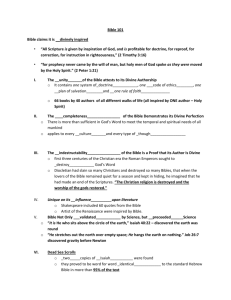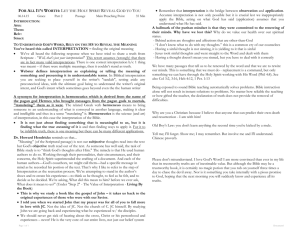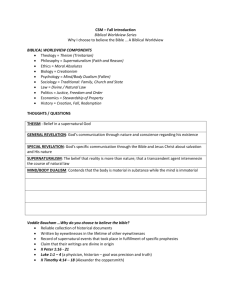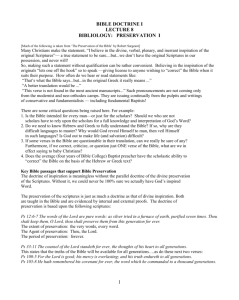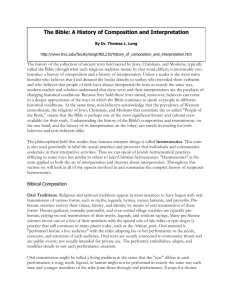Basic Bible Interpre..
advertisement
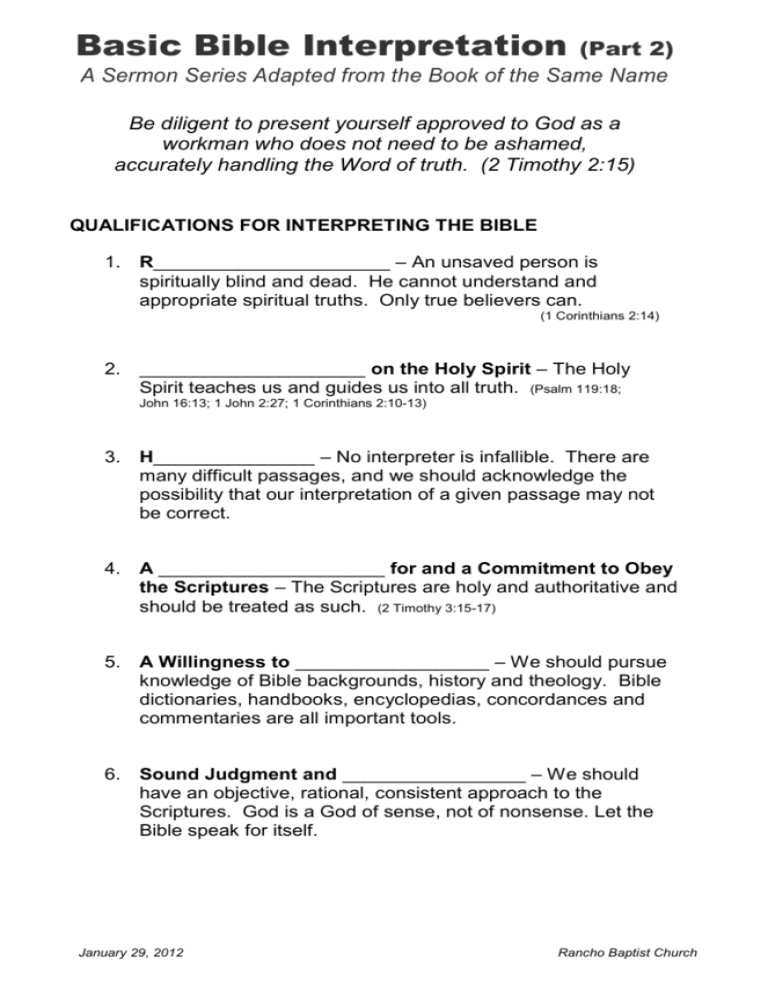
Basic Bible Interpretation (Part 2) A Sermon Series Adapted from the Book of the Same Name Be diligent to present yourself approved to God as a workman who does not need to be ashamed, accurately handling the Word of truth. (2 Timothy 2:15) QUALIFICATIONS FOR INTERPRETING THE BIBLE 1. R______________________ – An unsaved person is spiritually blind and dead. He cannot understand and appropriate spiritual truths. Only true believers can. (1 Corinthians 2:14) 2. _____________________ on the Holy Spirit – The Holy Spirit teaches us and guides us into all truth. (Psalm 119:18; John 16:13; 1 John 2:27; 1 Corinthians 2:10-13) 3. H_______________ – No interpreter is infallible. There are many difficult passages, and we should acknowledge the possibility that our interpretation of a given passage may not be correct. 4. A _____________________ for and a Commitment to Obey the Scriptures – The Scriptures are holy and authoritative and should be treated as such. (2 Timothy 3:15-17) 5. A Willingness to __________________ – We should pursue knowledge of Bible backgrounds, history and theology. Bible dictionaries, handbooks, encyclopedias, concordances and commentaries are all important tools. 6. Sound Judgment and _________________ – We should have an objective, rational, consistent approach to the Scriptures. God is a God of sense, not of nonsense. Let the Bible speak for itself. January 29, 2012 Rancho Baptist Church KEY PRINCIPLE #1: THE BIBLE IS A HUMAN BOOK 1. Each biblical writing – that is, each word, sentence, and book – was recorded in a written language and followed ________________, grammatical meanings, including figurative language. 2. Each biblical writing was written by someone to ____________ hearers or readers in a specific historical, geographical situation for a specific purpose. 3. The Bible is affected and influenced by the _______________ environment from which each human writer wrote. 4. Each biblical writing was accepted or understood in light of its ___________________. 5. Each biblical writing took on the nature of a specific ____________________ form. 6. Each biblical writing was understood by its initial readers in accord with the basic principles of _________________ and communication. KEY PRINCIPLE #2: THE BIBLE IS A DIVINE BOOK 1. The Bible, being a divine book, is ______________________. 2. The Bible, being a divine book, is ______________________. 3. The Bible, being a divine book, has ____________________. 4. The Bible, being a divine book, has ____________________. The majority of the content in this study comes from the book by Roy B. Zuck: Basic Bible Interpretation • Wheaton, IL: Victor, 1991.




